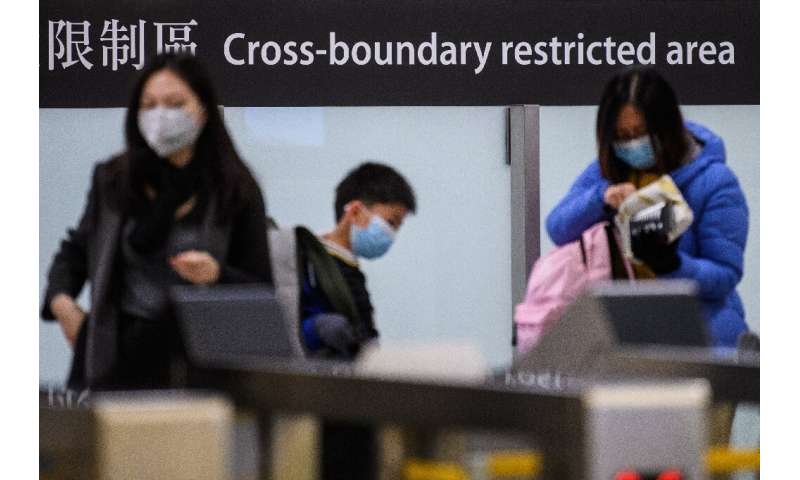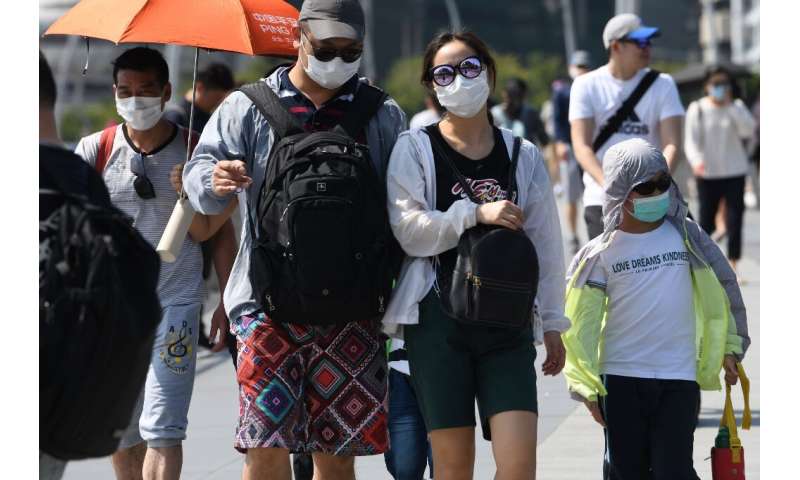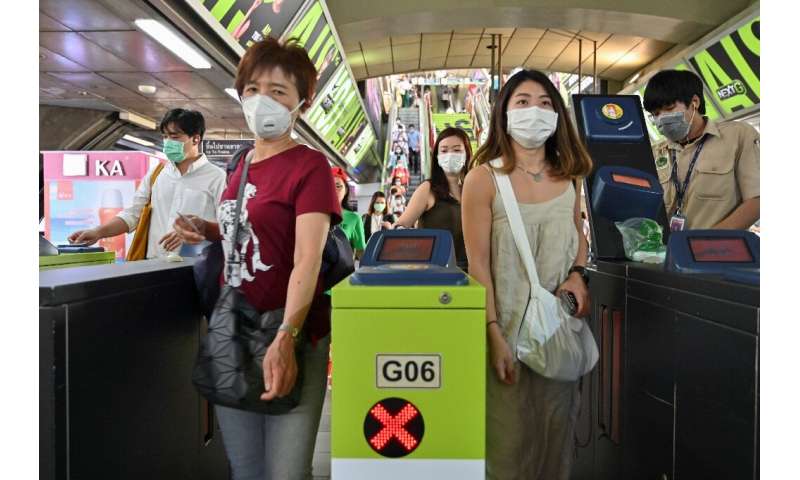
Asian nations were ramping up defences against a deadly viral epidemic Tuesday, sealing borders, shuttering public places and clamping down on visitors from China.
Concern over the steadily expanding contagion, which has killed over 100 in China and sickened more than 4,500, is prompting an increasingly urgent push for protection.
Hong Kong, which has eight reported cases of the SARS-like disease, announced the sealing of six of its 14 border crossings to the mainland from Thursday.
The government in the semi-autonomous Chinese city of seven million had faced criticism for merely barring people from the outbreak’s ground-zero, central Hubei province.
“The epidemic has spread to many Chinese provinces. Only blocking visitors from Hubei can’t do much to help Hong Kong,” lawmaker Helena Wong said.
Singapore, with seven confirmed cases of the virus, has announced it will ban visitors who have travelled to Hubei as well as those with passports issued in that Chinese province.
Government official Lawrence Wong said the travel restrictions were not taken lightly and will be expanded if necessary.
Officials said efforts are also underway to track down an estimated 2,000 people already in Singapore with a Hubei travel history for potenital quarantine.

Mongolia has taken a much more drastic line, closing its entire border with China to pedestrians and cars as well as ordering schools to close. It has no reported cases.
In Russia’s Far-Eastern district, which shares some 4,500 kilometres (2,800 miles) of frontier with China, crossings that should have re-opened after Chinese New Year will stay closed for days or weeks.
Corralling the disease has become an effort at containing people’s movements, and both Malaysia and the Philippines have taken steps to squelch the flow of Chinese visitors.
Manila has been issuing visas on arrival since 2017 to Chinese nationals, adding fuel to the boom in mainland visitors to the Philippines.
That policy is now suspended, though Chinese can still apply for a visa at a consulate or embassy in their home nation.
‘Avoid people gathering’
“We are taking this proactive measure to slow down travel, and possibly help prevent the entry (of the virus),” said Jaime Morente, immigration commissioner in the Philippines, which has no confirmed cases.

Thailand announced that all passengers flying in from Chinese airports are undergoing screening, as the number of confirmed infections hit 14 on Tuesday—the highest outside of China.
The outbreak is sending shock waves through Asia’s tourism industry, which has become increasingly reliant on growing numbers of Chinese visitors.
The measures come amid a boom in Chinese foreign travel, with the number of tourists from the country increasing nearly tenfold since 2003, according to a report by research firm Capital Economics.
China has already imposed wide-ranging travel restrictions across the country and halted international tours, but on Tuesday called for all overseas travel to be postponed.
Authorities have also cracked down on public places where the disease could spread, with Mongolia barring events like conferences or sporting competitions.
From Wednesday, Hong Kong public facilities ranging from pools and sports centres to museums will all be closed.
Source: Read Full Article
